#ElectricVehicleRevolution
Text
Why Electric Cars Are The Future Of Transport : Easy Guide 2024
Using this simple 2024 guide, you'll learn why electric vehicles are going to change transportation. From environmental benefits to technological improvements, see how electric vehicles are impacting the future of mobility. Learn about the major features, charging infrastructure and economic benefits driving the transition to sustainable mobility. Stay on top of the competition with the prediction of electric vehicles.

#electriccars#electricridelab#transportation#FutureOfTransport#GreenTransportation#SustainableMobility#EVs#CleanEnergy#ElectricVehicleRevolution#ClimateAction#GoGreen#EcoFriendly#CleanTransport#ElectricMobility
0 notes
Text

The global electric vehicles market was US$ 410.2 Billion in 2022. Furthermore, the electric vehicles market to register revenue CAGR of 12.6% over the forecast period and account for market size of US$ 1,193.6 Bn in 2031.
#ElectricVehicleRevolution#EVMarketTrends#ElectricCarsMovement#EcoFriendlyTransport#EVInnovation#SustainableMobility#BatteryPoweredVehicles#GreenTransportation
1 note
·
View note
Text
Nissan Ignites Electric Vehicle Revolution in £2 Billion UK Boost

Electric Dreams Come True
Nissan is set to inject up to £2 billion into the production of two all-electric models, doubling down on their commitment to a green future. This includes replacements for popular models like the Juke and Qashqai, alongside the Leaf replacement announced in 2021. The move supports the skilled workforce of 7,000 at the Sunderland plant and an additional 30,000 employed in the supply chain.
A Milestone Investment
This investment is part of Nissan's broader commitment, bringing total investments since 2021 to an impressive £3 billion. The move ensures the future of the largest car factory in Britain, safeguarding over 37 years of automotive history at the Sunderland plant.
As the automotive industry transitions away from traditional petrol and diesel cars, Nissan's direct investment of up to £1.12 billion to produce the two models will enable wider investment in infrastructure projects and the supply chain, including a new Giga factory, bringing a total new investment today of up to £2 billion.
UK's Electric Drive
With all-new Nissan cars in Europe set to be fully electric, the UK's position as a global electric vehicle hub is solidified. The investment reinforces the government's goal of achieving net zero, with passenger cars expected to be 100% electric by 2030.
Today's announcement marks a significant step, with all-electric replacements for the Nissan Juke and Qashqai models, in addition to the all-electric Leaf replacement announced in 2021. This move supports the future of Nissan's highly skilled 7,000-strong UK workforce, as well as the 30,000 staff employed in the wider supply chain.
Driving Innovation in Vehicle Replacements
The announcement not only solidifies the commitment to electric vehicles but also signifies a leap forward with all-electric replacements for popular models, contributing to a sustainable future and a robust supply chain.
Sunderland: The Silicon Valley of Electric Innovation
Prime Minister Rishi Sunak expressed his enthusiasm, stating,
"Nissan’s investment is a massive vote of confidence in the UK’s automotive industry."
The move is set to position Sunderland as the UK's Silicon Valley for electric vehicle innovation and manufacturing. The Nissan Sunderland plant, a longstanding UK success story, opened in 1986 and has grown into one of Europe’s largest car plants with world-leading productivity.
Earlier this year, Nissan celebrated a milestone, producing their 11 millionth vehicle at the Sunderland Plant since inception—an average of a new car every two minutes, 24/7, for 37 years.
A Legacy of Innovation
Sunderland's success story in automotive manufacturing is further enhanced with this investment, solidifying its place as a hub for innovation and productivity in the electric vehicle sector.
Nissan's CEO on the Future
Nissan President and CEO Makoto Uchida highlighted the company's commitment to an all-electric future, saying,
"Exciting, electric vehicles are at the heart of our plans to achieve carbon neutrality."
With electric versions of core European models on the way, the UK team will be designing, engineering, and manufacturing the vehicles of the future, driving Nissan towards an all-electric future in Europe. Uchida's statement underscores Nissan's determination to achieve carbon neutrality, emphasizing the pivotal role of exciting and innovative electric vehicles in this journey.
Powering the North East
The announcement comes with the confirmation of a new Investment Zone for North East England. Expected to create over 4,000 jobs in the first five years, this zone aligns with the region's focus on Advanced Manufacturing and Green Industries.
This new investment is a key anchor for the Investment Zone, which will provide £160 million of support, including tax incentives, skills development, infrastructure, and innovation funding over the next ten years – addressing barriers to growth and ensuring the UK continues to win investment in the face of global competition.
A Green Economic Corridor
The Investment Zone promises to not only create jobs but also establish a green economic corridor, fostering innovation, and supporting sustainable growth in the North East.
Government's Commitment to Growth
Chancellor Jeremy Hunt emphasized the significance of Nissan's investment, calling it
"an enormous vote of confidence in the British economy."
The UK government continues to back businesses, with the recent Autumn Statement introducing measures to remove barriers to investment. The Chancellor announced further measures, making the Full Expensing scheme permanent, providing an effective permanent tax cut of £11 billion a year for businesses investing in IT equipment, plant, and machinery.
This move is set to boost business investment by £14 billion, helping grow the economy. Chancellor Hunt aims to foster a conducive business environment and boost investment with measures like permanent tax cuts and incentives.
Boosting Manufacturing Across the UK
The announcement follows a series of successful investments in the automotive sector, including Tata's Giga factory, BMW's investment in MINI EVs, Ford's Electric Drive Units, and Stellantis' investment in EV van production.
The UK has already overtaken France to become the eighth-biggest manufacturing nation globally, contributing £205 billion to the economy and boosting employment in every region of the country, including over 300,000 jobs both in the North West and Yorkshire and The Humber.
The automotive sector's recent investments contribute to a resurgent UK manufacturing landscape, positioning the country as a global manufacturing powerhouse.
Looking Ahead
The Business and Trade Secretary plans to announce the government’s Advanced Manufacturing Plan, providing comprehensive support for the UK’s manufacturing sector to enhance long-term sustainability and prosperity.
The Department for Business and Trade will also shortly publish the UK’s first Battery Strategy, outlining the government’s activity to achieve a globally competitive battery supply chain in the UK by 2030 that supports economic prosperity and the Net Zero transition.
The forthcoming Advanced Manufacturing Plan and Battery Strategy are pivotal in charting the course for sustainable and prosperous manufacturing in the UK.
Sources: THX News, Prime Minister's Office, 10 Downing Street, HM Treasury, Department for Business and Trade, The Rt Hon Kemi Badenoch MP, The Rt Hon Rishi Sunak MP, & The Rt Hon Jeremy Hunt MP.
Read the full article
#automotiveindustrygrowth#Chancellor'seconomicplan#electricvehiclemanufacturing#electricvehiclerevolution#greenfuturecommitment#Net-zerotransition#Nissaninvestment#Sunderlandplantexpansion#sustainabletravel#UK'sSiliconValley
0 notes
Text
Revolution On Wheels: Tesla's Remarkable Journey Toward Electric Mobility!
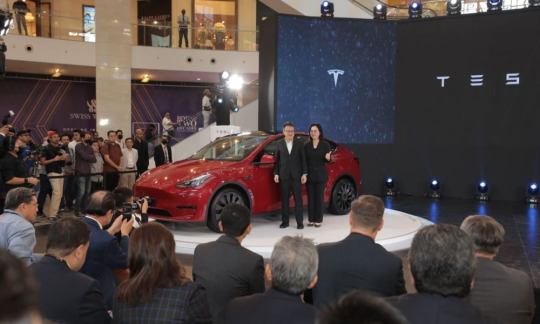
In the world of automobiles, one name has emerged in recent years as a harbinger of change, innovation, and sustainability: Tesla.
Founded by Elon Musk in 2003, Tesla has become synonymous with electric mobility and has embarked on a remarkable journey to revolutionize the automotive industry.
In this blog, we will delve into Tesla's fascinating story, highlighting its achievements, challenges, and its pivotal role in shaping the future of electric mobility.
The Birth of a Vision
Tesla's journey began with a bold vision: to accelerate the world's transition to sustainable energy.
Elon Musk, a visionary entrepreneur with a penchant for ambitious goals, set out to prove that electric cars could not only match but surpass traditional gasoline-powered vehicles in performance, range, and desirability.
The Road Less Traveled
One of the defining characteristics of Tesla's journey was its willingness to take the road less traveled.
While established automakers were hesitant to embrace electric mobility due to concerns about range limitations, charging infrastructure, and consumer demand, Tesla charged ahead.
In 2008, they introduced the Tesla Roadster, the world's first high-performance electric sports car.
This groundbreaking vehicle demonstrated that electric cars could be both exhilarating and practical.
Innovations That Set Tesla Apart
Tesla's success can be attributed to its relentless pursuit of innovation. Some of the key innovations that set Tesla apart include:
Supercharger Network: Tesla invested in building a global network of Supercharger stations, allowing drivers to quickly charge their vehicles on long-distance journeys.
Autopilot and Full Self-Driving: Tesla pushed the boundaries of autonomous driving technology, offering advanced driver-assistance features and laying the foundation for fully autonomous vehicles.
Energy Storage Solutions: Beyond cars, Tesla ventured into energy storage with products like the Powerwall and Powerpack, revolutionizing the way we store and utilize renewable energy.
Gigafactories: Tesla's Gigafactories are sprawling manufacturing facilities designed to produce batteries and electric vehicles at an unprecedented scale, driving down costs and making electric vehicles more affordable.
Market Disruption And Competition
Tesla's success has not gone unnoticed by traditional automakers. As demand for electric vehicles (EVs) grew, major players began to invest heavily in EV technology.
While this competition is healthy for the industry and the planet, it also posed challenges for Tesla.
However, Tesla's first-mover advantage, brand loyalty, and constant innovation have helped it maintain a strong market position.
Global Impact
Tesla's remarkable journey has had a global impact. It has forced the automotive industry to rethink its approach to sustainable transportation.
Governments around the world are now incentivizing electric vehicle adoption, investing in charging infrastructure, and setting ambitious emission reduction targets.
Conclusion
Tesla's journey toward electric mobility is nothing short of remarkable. From a visionary idea to a market leader, Tesla has transformed the way we think about cars, energy, and the environment.
While challenges lie ahead, including scaling production, improving affordability, and addressing environmental concerns related to battery production, there is no doubt that Tesla's impact on the world of electric mobility will continue to be felt for generations to come.
As we look to the future, Tesla's story serves as an inspiring reminder that innovation, determination, and a commitment to sustainability can indeed spark a revolution on wheels, paving the way for a cleaner, greener, and more exciting future of transportation.
#TeslaInnovation#ElectricMobility#SustainableTransport#CleanEnergyRevolution#TeslaElectricCars#FutureOfMobility#GreenTechnology#TeslaJourney#ElectricVehicleRevolution#TeslaImpact
0 notes
Text

Ready to transform your space into a new business venture?
Discover the potential of EV charging stations with OEVIC!
For EV Charging Solutions Contact Us!
📱+91 8008987948
🌐 oevic.com
#EVChargingStations#EVBusiness#OEVIC#ElectricVehicles#ChargingStations#Sustainability#GreenEnergy#InvestmentOpportunity#NewBusinessVenture#ProfitableBusiness#FutureOfMobility#ElectricVehicleRevolution
0 notes
Text
"Tesla Stock Triumphs: Soaring to $260.02 Per Share"

As of 14:10 PST on July 24, 2023, Tesla stock (TSLA) is trading at $260.02 per share. The stock is down 1.10% today, and is down 30.6% year-to-date. The market capitalization of Tesla is $824.13 billion.



Tesla stock
Tesla stock depends on the
Tesla's stock financial performance
Here are some of the factors that may be affecting Tesla stock today:
- The broader stock market is down today, as investors are concerned about rising interest rates and inflation.
- Tesla's production has been hampered by chip shortages and supply chain disruptions.
- Tesla is facing increased competition from other electric vehicle manufacturers, such as Ford and General Motors.
It is important to note that the stock market is volatile, and Tesla stock is a volatile stock. The stock price can go up or down significantly in a short period of time. Investors should carefully consider their own investment goals, risk tolerance, and investment horizon before making a decision to invest in Tesla stock.
Tesla stock depends on the
- Competition: Tesla is not the only company in the electric vehicle market. Other major players include Volkswagen, General Motors, and Ford. These companies are all investing heavily in EVs, and they could pose a challenge to Tesla's dominance.
- Supply chain issues: Tesla has been facing supply chain issues in recent months. These issues have affected the company's production and deliveries. If these issues persist, they could hurt Tesla's financial performance.
- Regulation: Tesla is facing increased regulatory scrutiny in some countries. For example, the European Union is considering new rules that would require all new cars to be equipped with advanced driver-assistance systems. These new rules could impact Tesla's business.
Overall, Tesla stock is a risky investment. However, the company has the potential to be a major player in the global automotive industry. If Tesla can execute on its plans and overcome the challenges it faces, the stock could deliver significant returns in the long term.
Here are some other factors that could affect Tesla stock in the future:
- The development of new battery technology.
- The growth of the global electric vehicle market.
- The adoption of self-driving technology.
- The overall political and economic environment.
It is important to do your own research before investing in Tesla stock. This includes understanding the company's business model, its financial performance, and its competitive landscape. You should also consider your own investment goals and risk tolerance.
Tesla's stock financial performance
Tesla's financial performance has been strong in recent years. The company has grown its revenue and earnings at a rapid pace. In 2022, Tesla's revenue was $81.46 billion, up 51.35% from 2021. The company's net income was $2.703 billion, up 127.79% from 2021.
However, Tesla's profitability has been declining in recent quarters. In the first quarter of 2023, Tesla's net income was $1.016 billion, down 39.5% from the first quarter of 2022. This decline in profitability was due to a number of factors, including increased competition, rising costs, and supply chain disruptions.
Despite the recent decline in profitability, Tesla's financial performance is still strong overall. The company is well-positioned for future growth, as the global electric vehicle market is expected to continue to grow in the coming years.
Here is a table of Tesla's financial performance over the past few years:
YearRevenueNet Income2022$81.46 billion$2.703 billion2021$53.823 billion$1.262 billion2020$31.536 billion$721 million2019$24.576 billion$367 million
As you can see, Tesla's revenue and net income have grown significantly in recent years. The company is well-positioned for future growth, as the global electric vehicle market is expected to continue to grow in the coming years.
However, it is important to note that Tesla is a risky investment. The company is facing increasing competition from other electric vehicle makers, and it is also subject to regulatory scrutiny. Investors should carefully consider the risks before investing in Tesla stock.
Read the full article
#automotive#autonomousvehicles#batterytechnology#BELGIUM#cleanenergy#cybertruck#electriccarcompany#electriccarmanufacturer#electriccars#electricvehicle#electricvehicleadoption#electricvehiclebatteries#electricvehiclecharging#electricvehicleindustry#electricvehicleinfrastructure#electricvehiclemarket#electricvehiclerevolution#electricvehicletechnology#electricvehicles#ElonMusk#EVs#Gigafactory#greenenergy#Interior#model3#models#modelx#ModelY#renewableenergy#Roadster
0 notes
Text
China's rising woo in the white oil industry

China's aggressive push to capture a significant share of the white oil market, fueled by growing demand for lithium used in electric vehicle batteries, is raising concerns in developed countries. China's extensive investments in lithium mines around the world and its goal to control one-third of the world's lithium production by 2025 present challenges for other countries.
The global response to China's white milk dominance
China's surge in investment in lithium mines has raised concerns among developed countries, especially those heavily involved in the electric vehicle industry. There are several key issues that developed countries need to address.As tensions between China and the U.S. escalate, concerns are rising about the potential for supply chains for key minerals, including lithium, to be disrupted. Developed countries are increasingly wary of relying heavily on resources controlled by China for strategic industries.Countries such as Canada and Australia have begun to impose restrictions on Chinese investment in lithium due to national security concerns.The fear of China exerting undue influence on the global lithium market poses a challenge to these countries as they seek to maintain control over their mineral resources.
Implications and future outlook
China has a significant share of lithium production and can therefore exert significant influence on lithium prices, which can affect the overall cost of electric vehicle batteries. This dynamic affects the competitiveness and affordability of electric vehicles in the global market.Disruptions in the supply chain due to geopolitical tensions or changes in Chinese policy can lead to shortages and price fluctuations. Developed countries should prepare for such a scenario to minimize disruption to their domestic industries.China's investments in emerging countries to secure lithium mines could strengthen its influence in the region. This could have long-term geopolitical consequences and potentially affect global power dynamics.
#WhiteOilIndustry#LithiumDemand#ChinaLithiumInvestments#ElectricVehicleRevolution#SupplyChainSecurity#DiversificationStrategies#GlobalResourcePolitics#GeopoliticalImplications#SustainableEnergyFuture#LithiumAlliances
0 notes
Video
youtube
"Unlocking the Future: Experience Helixx Electric Cars in Action!"
#youtube#HelixxElectricCars FutureOfTransportation SustainableMobility ElectricVehicleRevolution CostEffectiveMobility InnovativeTransportation Green
0 notes
Text
The Rise of EV Globally

Written By: Jagriti Shahi
Introduction
In recent years, the global landscape of transportation has witnessed a paradigm shift with the growing adoption of electric vehicles (EVs). While much attention has been given to individual electric cars, there's a transformative trend that is reshaping the way businesses approach their transportation needs – the rise of electric fleets. Companies worldwide are increasingly recognizing the economic, environmental, and operational advantages of integrating electric vehicles into their fleet management strategies.
Rising of EV
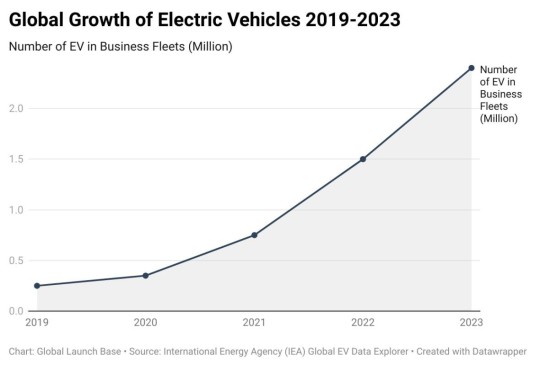
Figure: Global Growth of Electric Vehicles 2019-2023
Over the course of five years from 2019 to 2023, there has been a substantial evolution in the adoption of Electric Vehicles (EVs) within business fleets. In 2019, the count stood at 0.25 million EVs, a figure that saw a modest increase to 0.35 million in 2020. However, the momentum gained significant traction in 2021, with the number soaring to 0.75 million. The trend took a transformative leap in 2022, witnessing a remarkable surge to 1.5 million EVs integrated into business fleets. This positive trajectory continued into 2023, with a notable expansion, bringing the total to 2.4 million EVs. These escalating figures indicate a progressive shift towards sustainable and eco-friendly transportation solutions within corporate fleets, underscoring a growing commitment to reducing environmental impact and embracing cleaner mobility alternatives.
In recent years, the global landscape has witnessed a revolutionary shift towards sustainable practices, with a particular focus on the automotive industry. The transition from traditional internal combustion engine (ICE) vehicles to electric vehicles (EVs) has gained unprecedented momentum, signaling a new era for transportation. This article explores the speed of change in the electrification of vehicles, examining the factors driving this transition and the implications for the future of mobility.
Countries Transition to EV
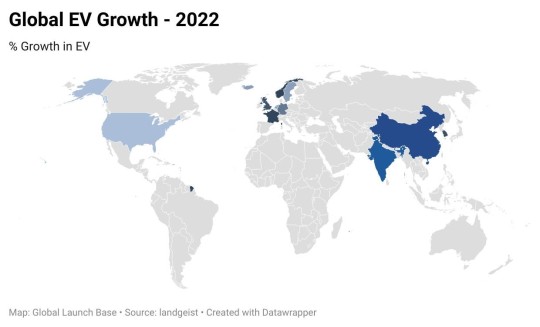
Figure: Global EV Growth
As we can see, Norway leads the pack in terms of EV adoption, with a staggering 80% share of new car sales in 2022. However, India is experiencing the fastest growth, with an impressive 82% increase in EV sales year-over-year. This is likely due to a number of factors, including government incentives, the rising popularity of electric two-wheelers, and the increasing availability of charging infrastructure.
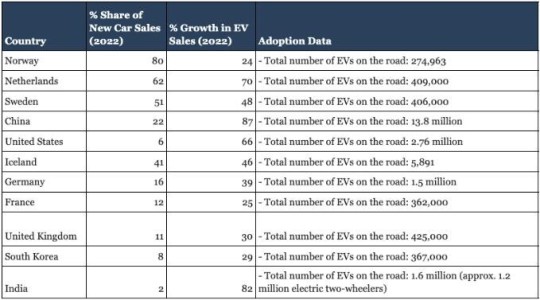
Norway: Norway has the highest EV market share in the world, with over 80% of new car sales being electric in 2022. The country has ambitious plans to phase out the sale of new gasoline and diesel cars by 2025.
Netherlands: The Netherlands has the second-highest EV market share in the world, with over 60% of new car sales being electric in 2022. The country has set a target of phasing out the sale of new gasoline and diesel cars by 2030.
Sweden: Sweden has a strong EV market, with over 50% of new car sales being electric in 2022. The country aims to have a fossil-fuel-free car fleet by 2040.
China: China is the world's largest EV market, with over 3 million EVs sold in 2022. The Chinese government has set ambitious targets for EV adoption, aiming for EVs to account for 20% of all new car sales by 2025.
United States: The United States is a growing EV market, with over 600,000 EVs sold in 2022. The US government has set a target of having 5 million EVs on the road by 2030.
India: India's EV market witnessed a significant surge in 2023, with sales growing by 82% compared to the previous year and 157% from FY2022 to FY2023. The electric two-wheeler market is currently the driving force, with over 1 lakh EVs sold every month in H2 FY2023.
Rapid Technological Advancements:
One of the primary drivers behind the swift transition to electric vehicles is the rapid advancement of technology. Breakthroughs in battery technology, energy storage, and electric drivetrain efficiency have significantly improved the performance and range of EVs. As a result, consumers are now presented with viable alternatives that not only match but often surpass the capabilities of traditional vehicles.
Government Initiatives and Policies:
Governments around the world have played a pivotal role in accelerating the adoption of electric vehicles. Many countries have implemented stringent emission regulations, incentivized the production and purchase of electric vehicles, and invested in charging infrastructure. These policy measures create a favorable environment for both manufacturers and consumers, fostering the rapid integration of EVs into the mainstream market.
Changing Consumer Preferences:
Consumer attitudes towards electric vehicles have undergone a remarkable transformation. With increased awareness of environmental issues and a growing emphasis on sustainability, more consumers are actively seeking eco-friendly transportation options. The appeal of electric vehicles extends beyond environmental concerns, as drivers are drawn to the lower operating costs, reduced maintenance requirements, and a smoother driving experience.
Before and After EV
The advent of Electric Vehicles (EVs) has brought about a transformative shift in the automotive landscape, marking a clear distinction between the era before and after the widespread adoption of electric mobility. Several key differences characterize these two periods:
Propulsion Technology:
Before EVs: The automotive industry predominantly relied on internal combustion engines (ICEs) powered by fossil fuels, such as gasoline and diesel.
After EVs: Electric vehicles use electric motors and batteries for propulsion, reducing or eliminating reliance on traditional fossil fuels. This shift represents a move towards cleaner and more sustainable energy sources.
Environmental Impact:
Before EVs: Internal combustion engines produced emissions, contributing to air pollution and greenhouse gas emissions, with detrimental effects on the environment.
After EVs: Electric vehicles produce zero tailpipe emissions, significantly reducing air pollution and contributing to efforts to combat climate change. The environmental benefits of EVs are a crucial factor driving their adoption.
Infrastructure Development:
Before EVs: The infrastructure primarily consisted of fuel stations for gasoline and diesel, with limited availability of charging stations for electric vehicles.
After EVs: The emergence of EVs has led to a rapid expansion of charging infrastructure, including public charging stations, home charging solutions, and fast-charging networks. This development addresses concerns about range anxiety and facilitates the widespread adoption of electric vehicles.
Government Policies and Incentives:
Before EVs: Government policies often focused on regulating emissions and fuel efficiency standards for internal combustion engine vehicles.
After EVs: Governments worldwide have introduced incentives and policies to promote the adoption of electric vehicles. These measures include tax credits, subsidies, and stricter emissions regulations to encourage a shift towards cleaner transportation.
Consumer Awareness and Perception:

Figure: Global Rise in Electric Vehicle Manufacturing: 2019-2022
Before EVs: Consumer awareness of electric vehicles was relatively low, and there were misconceptions about issues like limited range, performance, and charging infrastructure.
After EVs: Increasing environmental awareness, advancements in technology, and positive experiences with electric vehicles have led to a shift in consumer perceptions. More consumers now view EVs as viable alternatives with benefits such as lower operating costs, reduced maintenance, and a positive impact on the environment.
Automaker Strategies:
Before EVs: Traditional automakers focused primarily on the production of vehicles with internal combustion engines, with limited investment in electric mobility.
After EVs: Automakers are increasingly investing in electric vehicle technology, developing dedicated EV platforms, and announcing plans to transition to fully electric fleets. The competition in the electric vehicle market has intensified, driving innovation and improvements in battery technology and vehicle design
Economic Considerations:

Figure: Price Compression Over Time - 2019-2022
Before EVs: The economic landscape was heavily influenced by the fossil fuel industry, including oil extraction, refining, and distribution.
After EVs: The rise of electric vehicles has led to a shift in economic dynamics, impacting industries related to renewable energy, battery manufacturing, and electric vehicle production. This transition has implications for job markets, resource extraction, and economic sustainability.
Leading Emerging EV Companies
BYD Company Ltd. (China): BYD is a diversified company with a strong presence in the EV market. They produce a wide range of electric vehicles, including cars, buses, and trucks.
XPeng Inc. (China): Xpeng is a leading Chinese EV maker known for its premium sedans and SUVs. They have a strong presence in the Chinese market and are expanding into Europe.
Fisker Inc. (USA): Fisker is focused on designing and developing luxury electric vehicles with extended range and innovative features. Their first model, the Ocean SUV, is scheduled for production in late 2023.
Rivian Automotive (USA): Rivian is a manufacturer of electric trucks and SUVs. Their R1T pickup truck and R1S SUV are already in production and have received positive reviews for their performance and capabilities.
Canoo Technologies Inc. (USA): Canoo designs and develops electric vehicles for various applications, including delivery vans, passenger shuttles, and subscription-based personal vehicles. They have partnerships with Hyundai and Walmart, indicating their potential for future growth.
Polestar (Sweden): Polestar is a joint venture between Volvo Cars and Geely Holding Group. They offer high-performance electric vehicles and plan to launch new models in the coming years.
Euler Motors (India): Focuses on electric commercial vehicles, catering to the growing demand for clean and sustainable last-mile delivery solutions.
Ather Energy (India): Known for their high-performance and tech-integrated electric scooters, they have a strong presence in major Indian cities and are expanding their product range.
Tata Motors (India): This major player recently launched the Nexon EV, their first electric SUV, and plans to introduce more electric vehicles in the coming years.
The shift from the era before EVs to the current era reflects a broader global commitment to sustainability, technological innovation, and a transition towards a more environmentally conscious and energy-efficient transportation system.
About Global Launch Base:
Global Launch Base helps international startups expand in India. Our services include market research, validation through surveys, developing a network, building partnerships, fundraising, and strategy revenue growth. Get in touch to learn more about us.
Contact Info:
Website: www.globallaunchbase.com
LinkedIn: https://www.linkedin.com/company/globallaunchbase/
Email: [email protected]
Organisation Mentioned: Byd Company Limited XPENG Fisker Rivian Canoo Polestar Euler Motors Ather Energy Tata Motors
#ElectricVehicles hashtag#EVs hashtag#SustainableTransportation hashtag#GreenTechnology#hashtag#ElectricCarMarket hashtag#EVAdoptionTrends hashtag#RenewableEnergyVehicles hashtag#ChargingInfrastructure hashtag#EnvironmentalImpactOfEVs hashtag#GlobalElectricVehicleMarket hashtag#FutureOfTransportation hashtag#EVBatteryTechnology hashtag#ElectricVehicleIndustryGrowth#GovernmentIncentivesForEVs hashtag#EVManufacturers#ElectricVehicleRevolution hashtag#CleanEnergyTransportation#EVMarketAnalysis hashtag#EVSalesProjections hashtag#EVInvestmentOpportunities
0 notes
Photo

TNR is updated with time and technology. It uses modern technologies in their scooters @tnrevehicles
https://www.facebook.com/TNReVehicles
Now With #changethedrive
Be a smart buyer and invest in TNR's EV scooter.
0 notes
Text
USAID’s Urja Nepal has taken a significa... #AdvantagesofelectricvehiclesinNepal #builds #ChallengesinscalingupEVinfrastructureinNepal #charging #CleanmobilityNepal #CommunityengagementinEVinitiatives #EconomicbenefitsofelectricmobilityinBagmati #electric #Electricvehicleinitiatives #Electricvehiclerevolution #ElectricVehiclesNepal #EVcharginginfrastructure #EVchargingstationsBagmati #Fossilfuelreduction #FutureofelectricmobilityinBagmati #GenderinclusiveapproachinEVawarenesscampaigns #Greentransportation #ImpactofEVadoptiononNepalstradedeficit #ImportanceofEVinfrastructureinBagmati #Nepal #NepalElectricityAuthority #Nepalenergytransition #NepalEVadoption #NetzerotargetsNepal #RoleofUSAIDinNepalsenergytransition #stations #StrategiesforsustainabletransportationinNepal #SustainabletransportationNepal #Urja #USAIDgrantsNepal #USAIDUrjaNepal #USAIDs #vehicles
0 notes
Photo

"El innovador auto de carreras eléctrico de Fórmula E, GEN3, explicado" ¡Hola a todos los fanáticos de los coches! Hoy analizaremos el último prodigio de la tecnología de las carreras eléctricas. Les estoy hablando de la nueva Gen3 de la Fórmula E. ¡Es realmente fascinante y está cargado, con QUERKS Y FEATURES como nunca antes habríamos soñado! Primero que nada, este coche incorpora la carga bidireccional, que es una nueva función emocionante. ¿Qué significa eso?, Se preguntarán. Bueno, significa que el coche puede devolver energía a la red eléctrica o a otro coche. ¡Eso es algo sorprendente! Esto revoluciona la forma en que vemos los coches de carreras. Pronto puede haber una carrera donde no solo importa cuán rápido puede conducir, sino cuánta energía puede devolver a la red. ¡Que no se diga dentro del #ElectricVehicleRevolution! Además, este coche tiene un gestor de energía. Este gestor de energía, regulado por la FIA, controla la potencia durante las carreras. Se asegurará de que, al final del día, gane el mejor piloto, no el coche con la batería más grande. Hablando de baterías, la Gen3 contará con una batería de 600 V, que es más liviana y potente que nunca. Está diseñada para ser más eficiente, ¡lo que tendrá un impacto significativo en la forma en que se desarrollan las carreras! Y, como si eso fuera poco, hablamos de un coche que podría ser el doble de eficiente que los coches de la F1 actual. ¿Pueden imaginarlo? Eso es como pasar de una hoguera a un horno de microondas en términos de eficiencia. ¡Es algo asombroso! Esto puede ser el futuro de las carreras. Estamos viendo cómo la evolución tecnológica se acelera a un ritmo inigualable, y es emocionante ser testigo y analizar estos avances para todos ustedes, amantes de los coches. Ciertamente, va a modificar la forma en que vemos las carreras ahora y en el futuro. Sumado a todo esto, la Fórmula E pretende ser carbono neutral para 2030. Eso significa que, además de tener coches más rápidos, más eficientes y EXCITANTES, también están poniendo en práctica principios ambientales sólidos. No podríamos pedir más, ¿verdad? Lo que vemos aquí con la Gen3 de la Fórmula E es un gran paso hacia adelante en la tecnología de los coches de carreras. No solo eso, sino que nos está mostrando un futuro emocionante y prometedor para el mundo de las carreras en general. Los coches de carreras no solo serán más rápidos y potentes, sino que también serán más eficientes y respetuosos con el medio ambiente. ¡Es el tipo de avance emocionante e impresionante que nos entusiasma a todos en el mundo automotriz! Sigamos atentos a la #FastLaneElectric para ver cómo se desenvuelve este nuevo titán de las carreras. ¡Hasta la próxima, aficionados de los coches! Sigan acelerando en sus propias aventuras sobre ruedas.
0 notes
Photo

KiloGen - Great Resource For Electric Car / Vehicle Insight
Updates to our website are happening as we type. Find information on BEVs, PHEVs, PEVs and more. Content will be posted throughout the week. Thanks for the support so far! Visit our website and let us know if you have any comments or questions.
🔋@KiloGen_
#electriccars#electriccarsarethefuture#electriccarshow#electriccarsonly#electriccarstreet#electriccarsrock#electriccarsworld#electriccarsforsale#electriccarsales#electricvehicle#electricvehicles#electricvehiclesarethefuture#electricvehiclesonly#electricvehicletechnology#electricvehiclestechnology#electricvehiclesnews#electricvehiclerevolution#electricvehicleshow#electricvehicles2021#electricvehiclenews#electricvehicleinnovation#electricvehicleshowcase#electricvehicleforsale#electricvehiclesforsale#teslamodel3#teslamodel3roadtrip#teslamodel3canada#teslamodel32021#teslamodel3performance#teslamodel3owner
1 note
·
View note
Text
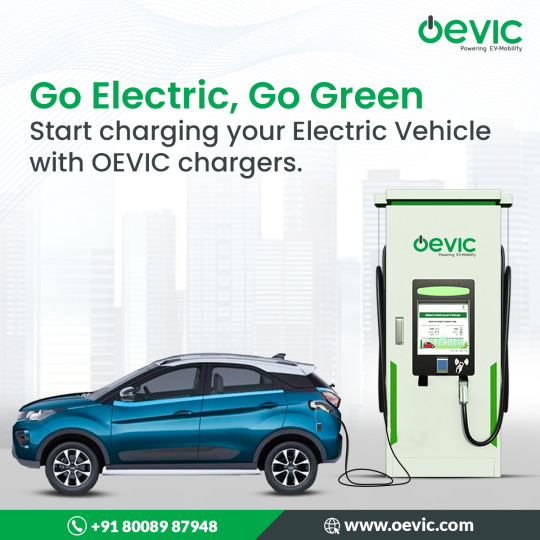
Go Electric, Go Green
Start charging your Electric Vehicle with OEVIC chargers.
For EV Charging Solutions Contact Us!
📱+91 8008987948
🌐 oevic.com
#goelectricgogreen#oevicchargers#electricvehicles#evcharging#evchargingstations#greenenergy#sustainabletransportation#cleantransportation#futureofmobility#electricvehiclerevolution
0 notes
Text
A large company's EV business vs.
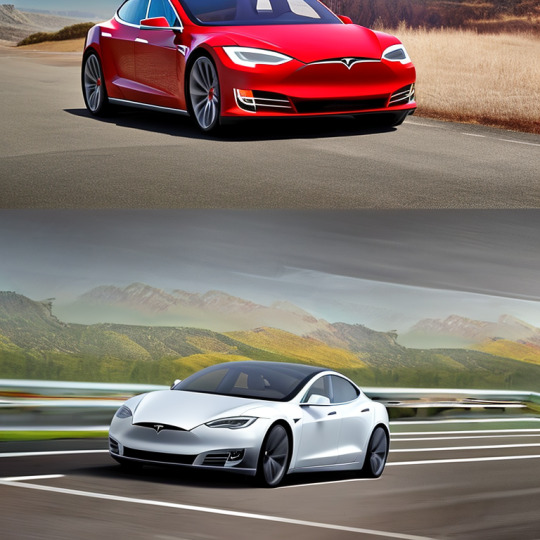
As the world accelerates toward a greener future, the electric vehicle (EV) industry has surged to the forefront of the global automotive market. Toyota's recent announcement outlining a massive 24 trillion won investment over the next five years has sparked a chain reaction among other automotive giants. The Korean market, in particular, has been buoyed by major automakers expanding their stakes in the EV space.
International companies
While Tesla continues to dominate headlines with its groundbreaking feats, the EV market landscape is becoming increasingly diverse. The South Korean auto market, home to Hyundai and Kia, is stepping up to the challenge and expanding its EV investments.
On the global stage, other automotive giants like Nissan in Japan and General Motors (GM) in the U.S. are also expanding their stakes in the EV business. Their efforts reflect a growing trend of automakers shifting gears toward a more sustainable future, fueled by Toyota's recent decision.
The rapid growth of the electric vehicle market, coupled with increased competition, has sparked another booming industry: waste battery recycling. With finite resources like lithium, nickel, and cobalt playing a critical role in secondary batteries, waste battery recycling could become increasingly important.
According to energy market research firm SNE Research, the global waste battery recycling market has the potential to grow at a CAGR of 33%, reaching KRW 600 trillion by 2050.
South Korea's electric car city
Meanwhile, Kia Motors, another prominent player in the Korean auto industry, is not far behind. As part of its "Plan S" strategy, Kia aims to make 25% of its sales EVs by 2029.Hyundai is pushing the boundaries of EV technology and devoting resources to developing cutting-edge EV models. Hyundai is a firm believer in the EV revolution and is steadily expanding its lineup of eco-friendly vehicles with the goal of selling one million EVs globally by 2025.Korean battery giants LG Energy Solutions, SK energy, and Samsung SDI have already begun recycling waste batteries in earnest. Hyundai Motor Group, SK Ecoplant, and POSCO have also joined the fray, seeing waste battery recycling as a profitable and eco-friendly business. LG Energy Solutions has established a battery recycling joint venture with China's Huayu Cobalt, while SK Energy is building a waste battery value chain with SK Innovation and SKC. Samsung SDI is also involved in Sungil High Tech's waste battery business.The current momentum in the Korean market suggests that the country's automotive giants are well positioned to be at the forefront of this electric revolution.
#ElectricVehicleRevolution#KoreanAutomakers#HyundaiEVs#KiaElectric#GreenInnovation#BatteryRecycling#SustainableFuture#LG_EnergySolutions#SKOn#SamsungSDI
0 notes
Video
youtube
Tesla's Giga Lab Unveiled: A Journey into the Future of Automotive Retail!
#youtube#TeslaInnovation GigaLaboratoryExperience FutureOfRetail ElectricVehicleRevolution TechAndRetailFusion TeslaMagic InnovationJourney GigaLabDe
0 notes